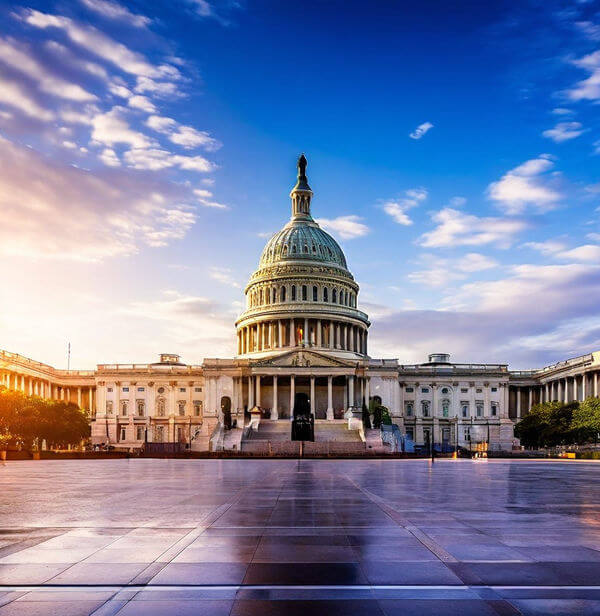
Understanding the EB-2 NIW Visa and Its Benefits
The EB-2 visa caters to individuals with advanced degrees or exceptional abilities seeking employment in the United States. Those who qualify under these categories and demonstrate that their work serves the U.S. national interest may pursue a National Interest Waiver (NIW) within their EB-2 visa application. This waiver effectively grants them lawful permanent residency in the U.S. without the need for a job offer or PERM labor certification, typically required in other employment-based visa processes. To initiate an EB-2 visa application, one must file Form I-140, known as the “Immigrant Petition for Alien Worker.” The unique aspect of the NIW is that it permits self-petitioning, thereby streamlining the path to U.S. permanent residency for those who meet its criteria. This guide aims to explore the qualifications for an EB-2 NIW visa in detail, ensuring applicants understand how to successfully navigate the application process. Additionally, achieving an EB-2 NIW visa stands as a significant milestone, recognizing the applicant's contributions and potential to benefit the U.S. on a national level.
EB-2 NIW Application Fees Explained
Navigating the financial aspects of the EB-2 NIW (National Interest Waiver) application involves several fees. Initially, NIW applicants are required to submit a payment of $700 alongside Form I-140, the "Immigrant Petition for Alien Worker." The approval of Form I-140 leads to different subsequent steps based on the applicant's residence. For those residing within the United States, the next step involves filing Form I-485, the "Application for Adjustment of Status," which incurs a specific filing fee. Additionally, applicants must budget for the medical examination, which typically costs between $200 and $400, plus a $85 fee for biometric services. Applicants living outside the U.S. will proceed through consular processing. The fee for processing an employment-based green card through a U.S. consulate is set at $345. Understanding these costs is crucial for preparing financially for the EB-2 NIW visa process and ensuring a smooth application experience.
Understanding the Timeline for EB-2 NIW Visa Applications
Initially, applicants must prepare for the Form I-140 processing, which could range from 10.5 to 26.5 months, influenced by the applicant's filing location. Following approval, it's crucial to consult the U.S. Department of State’s Visa Bulletin to determine the availability of a green card; the Boundless guide offers detailed instructions on interpreting this bulletin. Availability dictates when one can commence the green card application. For those in the United States, the next step involves submitting Form I-485, with processing potentially extending beyond two years due to USCIS workload variations. International applicants will navigate consular processing, typically facing a 4 to 6-month wait, though pandemic-related disruptions may cause further delays. Opportunely, if eligibility for immediate permanent residency is confirmed, concurrent submission of I-140 and the green card application may expedite the process.
Additionally, applicants desiring to track their case progress can utilize the status check feature available on the USCIS website, ensuring they remain updated on their application status throughout this comprehensive process.
Background
In the 1998 ruling known as the Matter of New York State Department of Transportation (NYSDOT), the Administrative Appeals Office (AAO) of the U.S. Citizenship and Immigration Services (USCIS) established a three-part framework for evaluating National Interest Waiver (NIW) petitions. This framework required USCIS evaluators to consider:
- a) The significant inherent value of the job in question
- b) The extent to which the applicant's work and its benefits have a nationwide impact
- c) The potential adverse effects on the national interest of requiring a Program Electronic Review Management (PERM) certification
However, in their 2016 Matter of Dhanasar decision, the AAO identified shortcomings with these criteria. They deemed the term "intrinsic" in the first criterion as unnecessary and confusing. The panel also criticized the second criterion's focus on "national in scope" for suggesting a merely geographical interpretation. The most significant issues arose with the third criterion, which was dispersed across four different definitions in the original NYSDOT decision, making it convoluted and repetitive. This requirement essentially forced the applicant to provide evidence akin to that required for PERM certification, despite the intention for the waiver to circumvent this need.
Eligibility Criteria for the EB-2 National Interest Waiver
This section outlines the criteria for securing an EB-2 visa through a national interest waiver.
Criteria for a National Interest Waiver
To be granted a National Interest Waiver (NIW), candidates must prove:
- a) Their intended project is of significant value and importance to the nation
- b) They possess the necessary skills and qualifications to successfully carry out their intended project
- c) Waiving the standard job offer and PERM certification requirements would, overall, benefit the national interest (meaning the advantages of granting the NIW surpass those of adhering to the standard certification process).
Demonstrating "significant value" can be applicable across various domains such as education, healthcare, culture, technology, scientific research, entrepreneurship, and business practices. It isn't mandatory for applicants to quantify the economic gains of their initiative; instead, they can highlight the potential societal benefits. Furthermore, the project need not have a nationwide impact. Initiatives that aim to revitalize economically struggling regions by creating jobs can also qualify as being of national significance, even if their direct influence is more localized. Additionally, complete assurance of the project's success is not a prerequisite. Applicants only need to show they are adequately prepared and qualified to undertake their project. While not a necessity, possessing a well-established and successful business can enhance an applicant's NIW application.
Eligibility Based on Advanced Degree or Exceptional Ability
Alongside the national interest waiver criteria, applicants must also demonstrate they possess either an advanced degree equivalent or exceptional ability. Exceptional ability refers to possessing expertise significantly beyond what is typically seen in the sciences, arts, or business fields. For the advanced degree requirement, applicants must have at least a master’s degree equivalent or a bachelor’s degree equivalent plus five years of progressive, post-baccalaureate work experience. The key is to ensure the foreign degree aligns with U.S. standards. For instance, a law degree obtained at the undergraduate level in some countries does not qualify as an advanced degree in the U.S. Applicants are advised to verify their degree’s U.S. equivalent through credential evaluation services like World Education Services or Education Credential Evaluators.
Collecting Evidence for the EB-2 NIW Application
To satisfy the requirements of the National Interest Waiver (NIW), applicants are required to compile and submit compelling evidence with their Form I-140 application. This section aims to:
- a) Offer insights on how to effectively gather evidence
- b) Suggest a variety of documents that can strengthen the applicant’s argument
NIW Evidence Compilation Tips
Since there are no specific documents mandated by law for NIW petitions, USCIS adjudicators evaluate each application individually. However, USCIS does offer some guidance to help applicants understand what might strengthen their case. For example, in assessing whether an applicant is adequately prepared to undertake their proposed endeavor, several factors may be taken into account, such as:
- The applicant’s educational achievements;
- Relevant skills;
- A history of success in their field, as evidenced by awards or recognitions;
- Specialized knowledge that pertains to the proposed endeavor;
- A detailed plan for implementing the proposed project;
- Evidence of steps already taken towards achieving the proposed objective;
- Interest or endorsement from potential users, investors, or other stakeholders.
Evaluating the Benefit of Waiving the PERM Certification for the U.S.
Assessing if foregoing the PERM certification aligns with U.S. interests involves examining aspects such as:
- The feasibility of obtaining a job offer or labor certification for the applicant, given their unique skill set;
- The overarching benefit of the applicant’s contributions to the United States, irrespective of its effects on local workers in similar sectors;
- The critical need for the applicant’s specific skills in the United States.
Illustrative examples of how applicants might leverage these considerations include:
Entrepreneurs might point out the impracticality—or outright nonsensical nature—of requiring a business founder to obtain a labor certification or job offer. Regarding the second point, individuals could argue that their contributions are so vital to societal progress that the presence of similar efforts by U.S. citizens is irrelevant. Scientists, referencing the third consideration, might assert that their research is crucial for addressing health emergencies or advancing medical knowledge, underscoring an immediate need for their expertise.
Building a Case for the National Interest Waiver
To construct a persuasive National Interest Waiver (NIW) application, the following types of evidence should be compiled:
- Relevant statistics or data supporting the significance of the endeavor.
- Media coverage or publications highlighting the applicant's contributions and the national relevance of their work.
- Scholarly research that aligns with the applicant's field of endeavor.
- A detailed plan illustrating the steps the applicant will take to achieve their project's objectives.
- Recommendations from field experts detailing the applicant's qualifications and the importance of their work (refer to FAQ for additional guidance).
- Verifiable achievements in the field, such as awards, published conference papers, patents, or other forms of recognition.
- A current resume showcasing the applicant's background and expertise.
- Academic qualifications, including diplomas and degrees.
Entrepreneurs should also consider including:
- Proof of investment or start-up capital.
- Letters of intent from potential partners or customers.
- Existing contracts or agreements.
Applicants should ensure their evidence not only supports their qualifications but also cohesively addresses the three key criteria of the NIW. Additionally, documentation proving the applicant's advanced degree or exceptional ability must be gathered, as explored in subsequent sections.
Qualifying with an Advanced Degree
For those applying in the advanced degree category, applicants must provide evidence of either:
- a) Possession of a degree equivalent to a master’s degree or higher, as demonstrated by diplomas and transcripts.
- b) A bachelor’s degree equivalent, complemented by letters from employers documenting five years of progressive post-baccalaureate work experience.
The employer letters must indicate a notable advancement in skills over the five-year period. Applicants holding an advanced degree or its equivalent are encouraged to pursue this pathway, given that the criteria for exceptional ability entail a more complex set of requirements.
Documentation Requirements for Demonstrating Exceptional Ability
To be considered under the exceptional ability category, applicants must present at least three of the following pieces of evidence:
- Academic records confirming receipt of degrees, diplomas, or certificates in areas related to their exceptional ability from recognized institutions.
- Evidence of remuneration for services that underscore the applicant's exceptional abilities.
- Licenses or certifications enabling the applicant to practice their profession.
- Membership in professional associations relevant to their field of expertise.
- Letters verifying at least a decade of full-time professional experience in their area of expertise.
- Recognition from peers, government entities, or professional organizations for contributions to their field.
- Any additional evidence that supports the applicant's eligibility.
The submission should convincingly demonstrate the applicant’s exceptional ability beyond just meeting the minimum evidence requirement. Therefore, applicants are encouraged to submit more than three pieces of evidence to build a compelling case. The goal is to ensure that the evidence not only meets the criteria but also compellingly argues for the applicant's exceptional abilities. All required documents must accompany Form I-140 for comprehensive review by USCIS officers.

